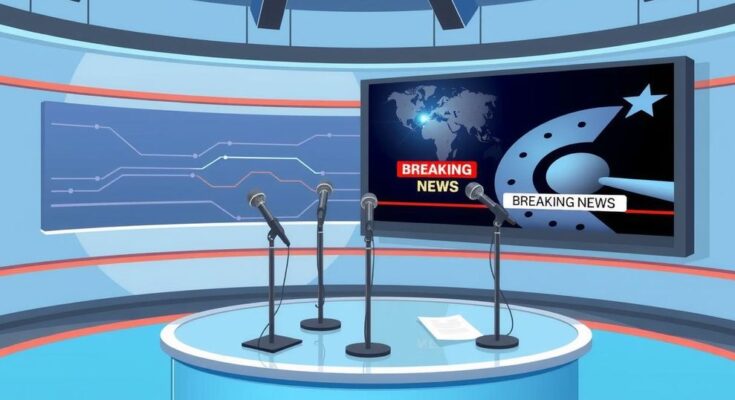In the fray of US-Iran military tensions, Jake Tapper has recently hit back at President Trump’s claims about media misrepresentation regarding the effectiveness of US strikes. Following a preliminary report from the Defense Intelligence Agency, indicating minimal long-term impacts on Iran’s nuclear capabilities, Tapper’s rebuke highlights the often fraught relationship between leaders and the press. As narratives clash, the integrity of journalism remains under scrutiny, sparking discussions on the responsibilities media hold in a democracy. This article dives into the heart of Tapper’s responses and the implications behind them.
Jake Tapper Defends Journalistic Integrity Amid Criticism
In a recent on-air segment, CNN’s Jake Tapper took a stand against President Trump’s disparaging remarks directed at media coverage over the US strikes on Iran. The President had labelled journalistic outlets as ‘fake news’, claiming their reports misrepresented the assessment from the Defense Intelligence Agency (DIA). The DIA report indicated that the military action might only have momentarily hindered Iran’s nuclear ambitions, contradicting Trump’s assertive claims that the strikes would ‘obliterate’ Iran’s capability to develop a nuclear weapon. Tapper didn’t hold back, asserting that the media has a duty to report the facts, no matter how unpleasant those facts may be for an administration.
The Complexity of Military Outcomes
Examining Trump’s comments, it’s clear he’s aligned with a narrative that paints the US strikes as a distinct victory, portraying a rather grandiose picture of their efficacy. However, the analysis from the DIA paints a different story, suggesting that any setbacks to Iran’s nuclear weapon development could be minimal and fleeting. During a tense exchange, Tapper challenged Trump’s framing of the events, making it evident that media outlets like CNN are obligated to inform the public based on the intelligence available rather than embellishing the narrative to align with political rhetoric. For Tapper, the truth—whatever it may be—needs to be the priority, even if it contradicts grand declarations from the White House.
Navigating Competing Narratives
This clash centers on what it means to communicate war and peace in today’s complicated media landscape. Importantly, striking Iran was meant to be portrayed as a significant step toward ensuring global safety, according to Trump’s perspective. But as the DIA report highlights, the reality might be far less decisive. Thus, we have an apparent chasm between the executive’s messaging and the intelligence community’s assessments. Tapper’s strong rebuttal urges viewers to seek information that captures the nuances surrounding such elevated acts of military intervention, reminding us that oversimplified narratives can obscure truth.
The Role of Media in National Defense
In a wider context, Tapper’s response underscores a broader trend in the media’s role during conflicts. The expectation for accurate and critical reporting has never been more crucial. In an era where misinformation and competing narratives are rampant, journalists face immense pressure to balance their duty of informing the public against the potential backlash from those in power. Trump’s remarks serve as a reminder that political leaders may often distort reality to serve their ends, making the journalist’s role paramount in keeping discourse grounded. This is especially vital when national security is at play, leaving citizens dependent on reliable narratives that reflect reality, not political aspirations.
The Future of Media and Politics
As this ongoing dialogue unfolds, one must consider what it means moving forward for both journalists and politicians. The intersection of media, warfare, and public opinion is likely to continue evolving as events develop. Tapper’s pointed critique serves as a vital part of the checks and balances inherent in a democracy, ensuring accountability from those in office. The stakes are high, with implications not only for US-Iran relations but for how information is consumed and interpreted by the public. Tension will persist, but it signals to the American people: the truth matters, especially in matters of war and peace.
Did the DIA report support Trump’s claims about the strikes?
Yes, the DIA report suggested the strikes might only delay Iran’s nuclear development by a few months, which contradicts the President’s assertions of complete destruction.
What was Jake Tapper’s response to Trump’s criticism?
Jake Tapper defended the media’s responsibility to accurately report facts, even when they conflict with the narrative pushed by the administration.
Why is accurate media coverage about military actions important?
Misinformation can lead to misunderstanding, which can have serious consequences for public perception and policy decisions regarding national security.
What is the media’s role in relation to political narratives and military decisions?
In a democracy, the media plays a critical role in holding leaders accountable and ensuring that the public receives a clear picture of national issues.




